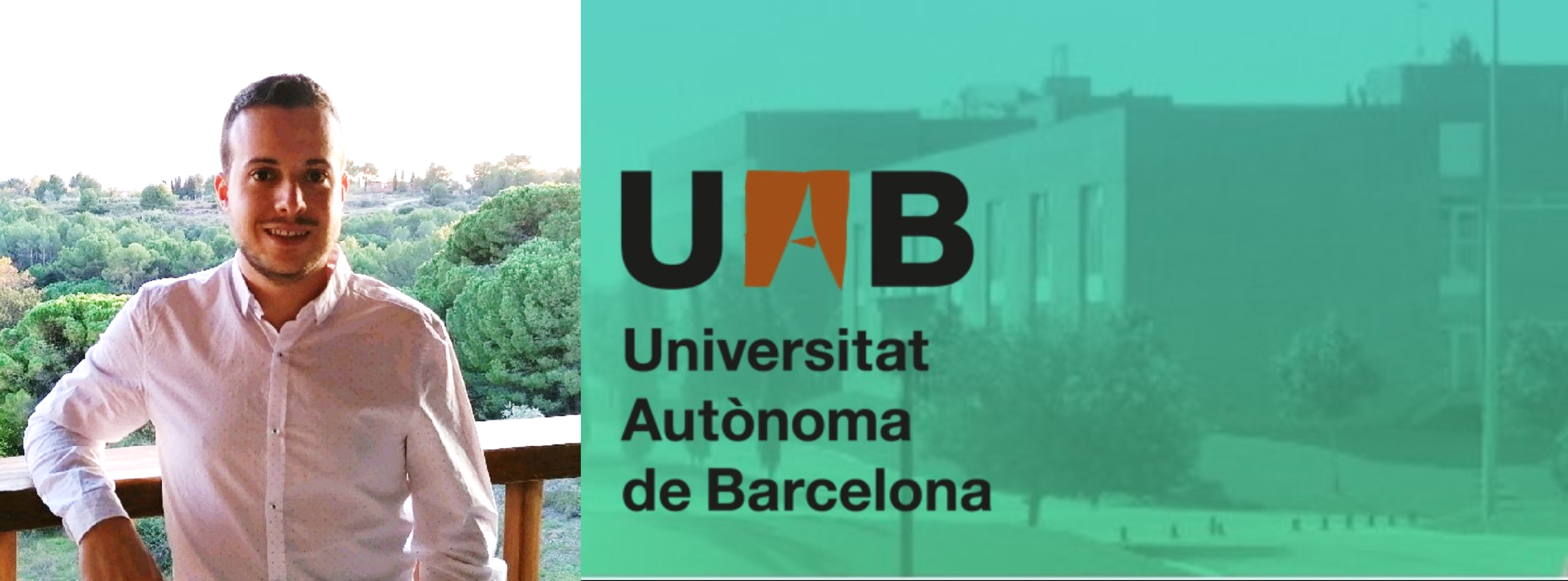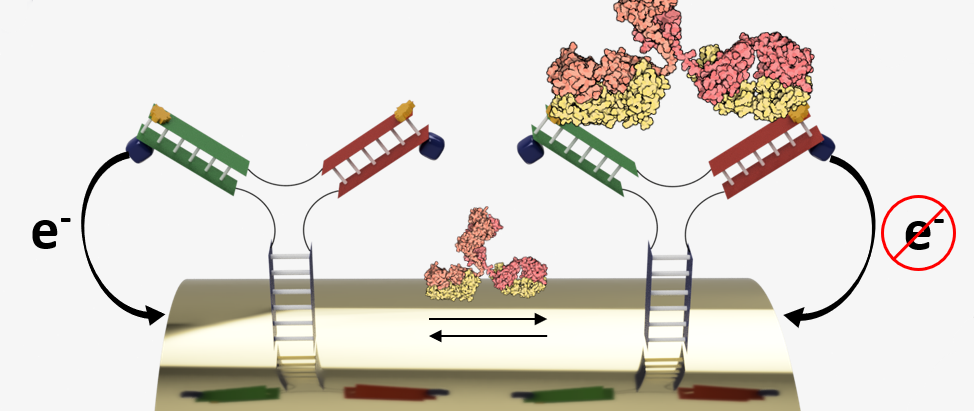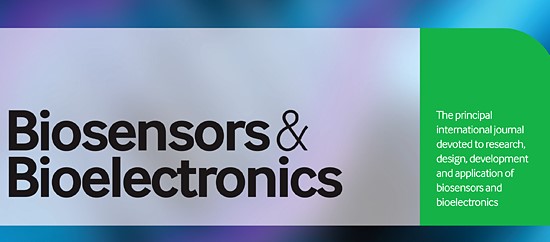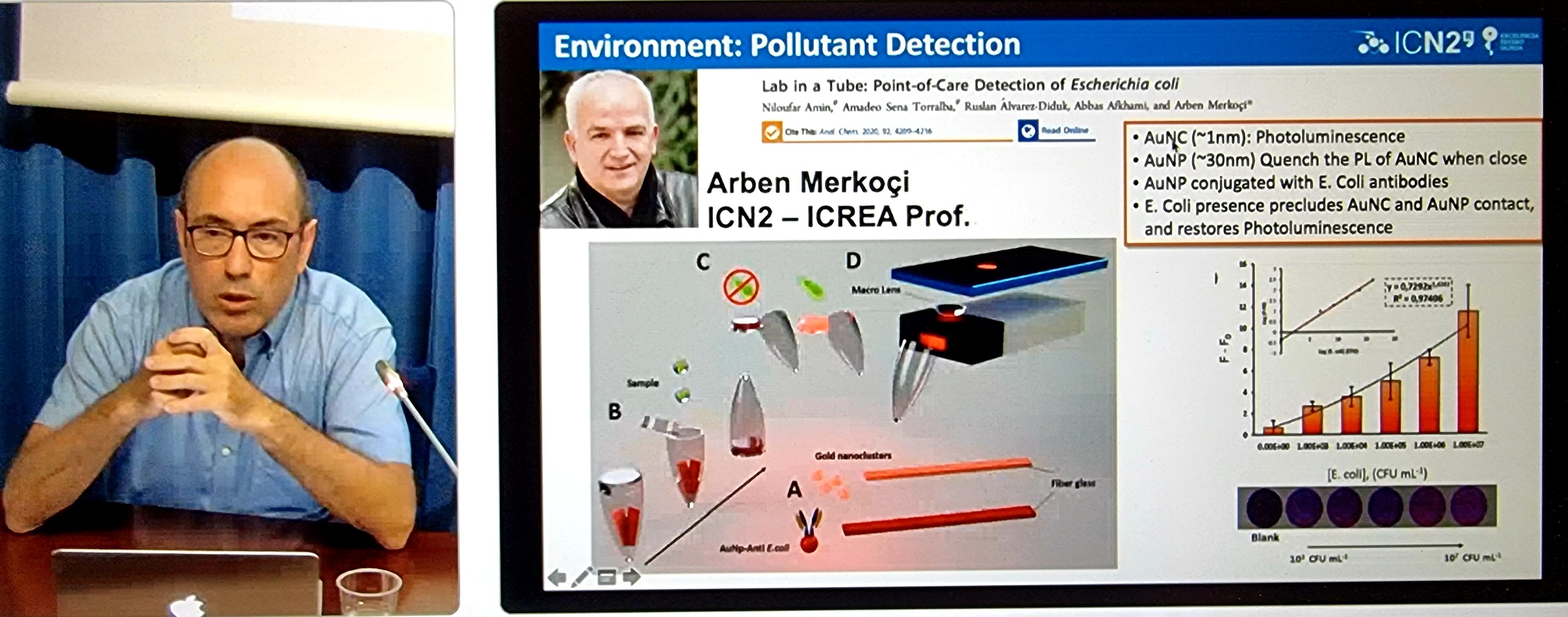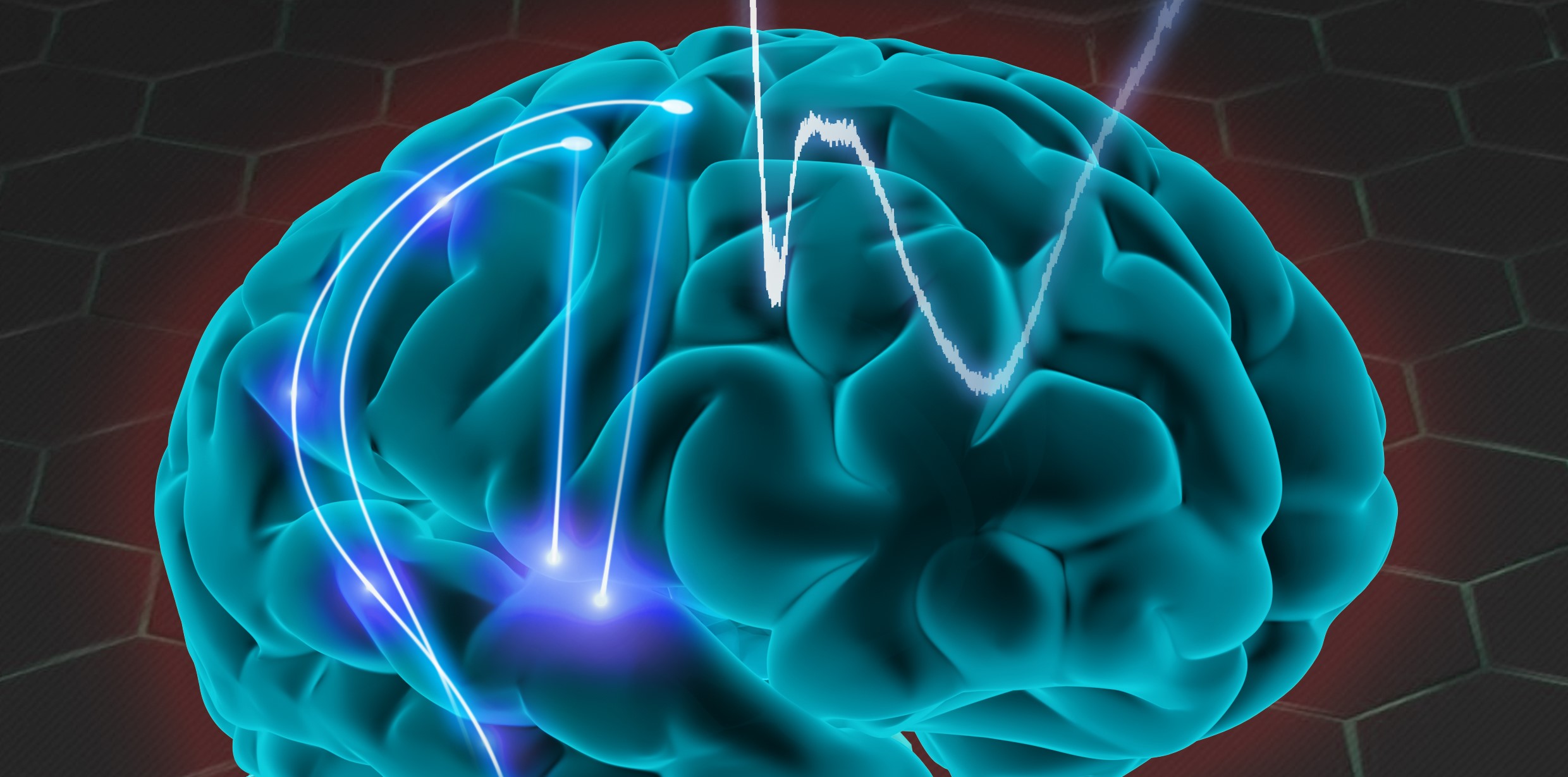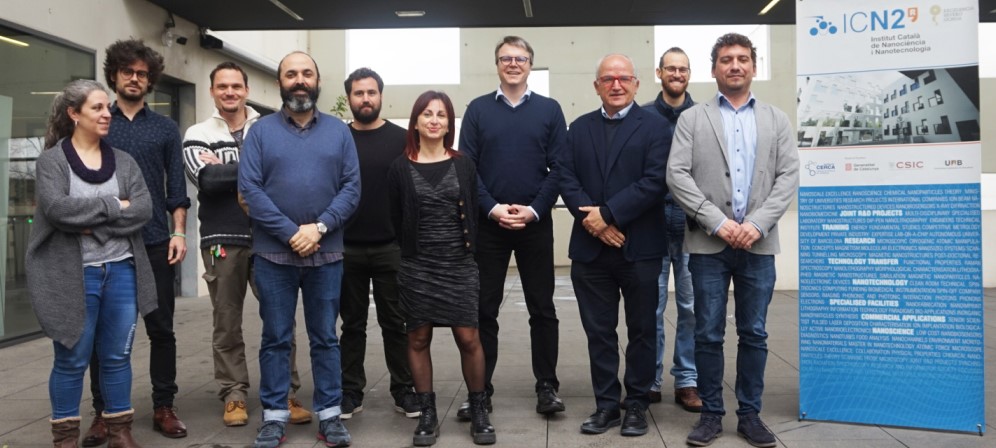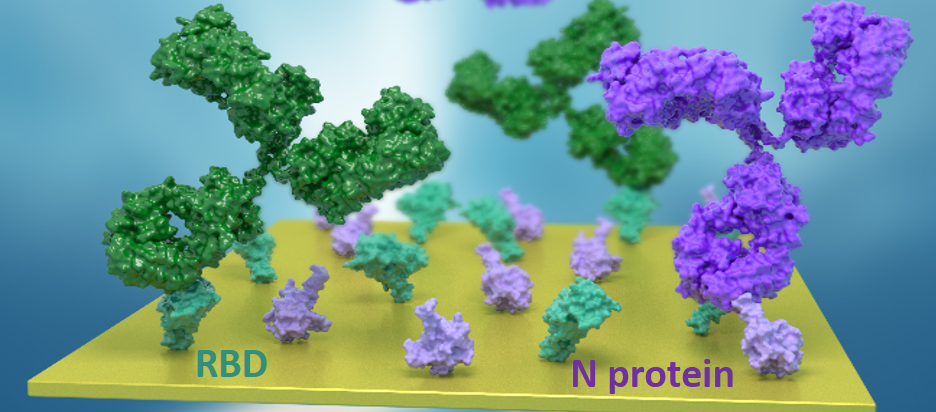Severo Ochoa Programme 2018-2022 Health NEWS
Our Partner:
https://royalreelspokies.live/ - Royal Reels Australia. Казино Вавада открывает доступ к игровой платформе через официальный сайт Vavada. Быстрая регистрация в
Вавада казино, щедрые бонусы и регулярные турниры с призовым фондом!
Thursday, 01 December 2022
A team of researchers led by members of the ICN2 NanoBiosensors and Bioanalytical Applications Group presents on the pages of ‘Sensors & Diagnostics’ an innovative photonic biosensor that can detect the presence of the SARS-COV-2 virus at very low concentrations in a sample. It can also provide a quantitative measure of the viral load in less than 20 minutes, which is crucial to prevent the spread of the infection and to intervene quickly with the appropriate treatment.
Wednesday, 16 November 2022
Thanks to this funding, researchers at the ICN2 will develop photo-sensitive materials for smart windows, membranes for skin regeneration and a device for rapid detection and discrimination of respiratory viruses.
Friday, 11 November 2022
The project eNLIGHT, led by Prof. Lechuga, will receive 30,000€ to develop an optical nanodevice that can provide rapid, effective and quantitative diagnosis of lung cancer from a small sample of human blood.
Thursday, 29 September 2022
Former PhD student at the ICN2 in the Nanobioelectronics and Biosensors Group led by Prof. Arben Merkoçi.
Thursday, 22 September 2022
The Barcelona Deep Tech Summit (September 22) unfolds a dense programme of roundtables, discussions, and pitches for investors.
Monday, 05 September 2022
A team consisting of current and former members of the ICN2 Nanobioelectronics and Biosensors Group has developed an electrochemical sensor based on a modified DNA scaffold nanostructure able to detect antibodies and proteins in unprocessed biological fluids. It has a Y-shaped architecture that mimics the one of natural Immunoglobulin antibodies. According to the results published in an article in ‘Advanced Functional Materials’, it is selective, specific, and adaptable to the detection of different biomarkers.
Wednesday, 31 August 2022
The WHO R&D Blueprint organised this consultation with experts in the field to apply scientific lessons learned during the SARS-CoV-2 global pandemic and draw an outline list of scientific gaps and priority research questions to prepare for pathogens with epidemic and pandemic potential.
Thursday, 04 August 2022
Nanophotonic (bio)sensors and some leading researchers working on various applications of this family of technologies are featured in an article in the “Nature Tech” Collection.
Wednesday, 15 June 2022
A new publication dedicated to bioengineering, with a special focus on applications and technology transfer, is being added to the Nature journal portfolio. In a seminar held at the ICN2, Chief Editor Dr Horejs presented the journal and discussed key aspects of the review and publication process in Nature-Springer.
Tuesday, 14 June 2022
The actuality and prolific nature of the topic called for a second special issue. ICN2 group leaders Prof. Merkoçi and Prof. Lechuga signed the editorial.
Wednesday, 08 June 2022
In this lecture, ICN2 Director Prof. Pablo Ordejón explained the role of nanotechnology in addressing major challenges in health, energy, environment, and other fields and provided examples of existing applications and new developments.
Monday, 30 May 2022
The event, which was organised by group leader Prof. Laura Lechuga and counted on the participation of many members of the ICN2 community, aimed at bringing together researchers in the field of nanomedicine, clinicians from relevant hospitals, and healthcare industry experts to share results and views both on recent advances in the field and on effective procedures to transfer new technologies into clinical practice.
Friday, 27 May 2022
Granted a total of 5.2M euros, the project will be carried out by a consortium coordinated by the ICN2 and that includes INBRAIN Neuroelectronics, a spin-off company founded by researchers from ICN2, IMB-CNM-CSIC and ICREA developing graphene-based implants to treat neurological diseases.
Monday, 21 March 2022
A review in "ACS Nano" examines the phases of the development of a diagnostic device, highlighting the critical aspects and limitations that slow down the process of bringing an innovative technology from the laboratory to the marketplace. This work was conducted by members of the ICN2 Nanobioelectronics and Biosensors Group.
Wednesday, 16 March 2022
The project “New comprehensive and disruptive diagnostic technologies for the fight against bacterial infections and antibiotic resistance”, presented by the ICN2 NanoBiosensors and Bioanalytical Applications Group, won in the category "Best Antibiotic Resistance Research Initiative”.
Tuesday, 15 March 2022
INBRAIN Neuroelectronics is a technology company developing graphene-based applications for neurological diseases founded by researchers from IMB-CNM-CSIC, ICN2 and ICREA who lead some of the research areas of the Graphene Flagship. The agreement paves the way for further development and industrialization of patented technology from CSIC, ICN2, ICREA, CIBERBBN, UAB and IDIBAPS.
Wednesday, 09 March 2022
The kick-off meeting of the GLEBioassay project, led by ICN2 group leader ICREA Prof. Arben Merkoçi, took place at the ICN2 on Wednesday 9 March. The project aims to develop a multiplexed point-of-care nanobiosensing platform to monitor the efficiency of naxitamab-based immunotherapy in neuroblastoma.
Wednesday, 02 March 2022
An innovative nano-biosensor for fast, quantitative and accurate COVID-19 serology, which achieves the high reliability of specialised laboratory analysis with the short times and simplicity of rapid self-tests, has been developed by a team of researchers led by Prof. Laura M. Lechuga, head of the ICN2 NanoBiosensors and Bioanalytical Applications Group. This work has been developed in collaboration with the Vall d'Hebron University Hospital and Research Institute (VHIR, Barcelona) and the Hospital Clínic of Barcelona–IDIBAPS –which provided the clinical samples and the validation— and the Emerging Virus Unit of Aix-Marseille University (France).
Wednesday, 09 February 2022
A project aiming at the nano-monitoring of cancer immunotherapy efficiency through a graphene electrophoretic bioassay platform, GLEBioassay, is one of the ten selected in the 12th Joint Trasnational Call for funding of the EuroNanoMed platform. The consortium will be led by Prof. Arben Merkoçi.
Monday, 07 February 2022
With €150,000 each, the SAFE-ON and COOLGRAELE projects will further develop the pioneering research carried out thanks to previous ERC funding and plan the transference of their technologies to the industry and, thus, the market.





